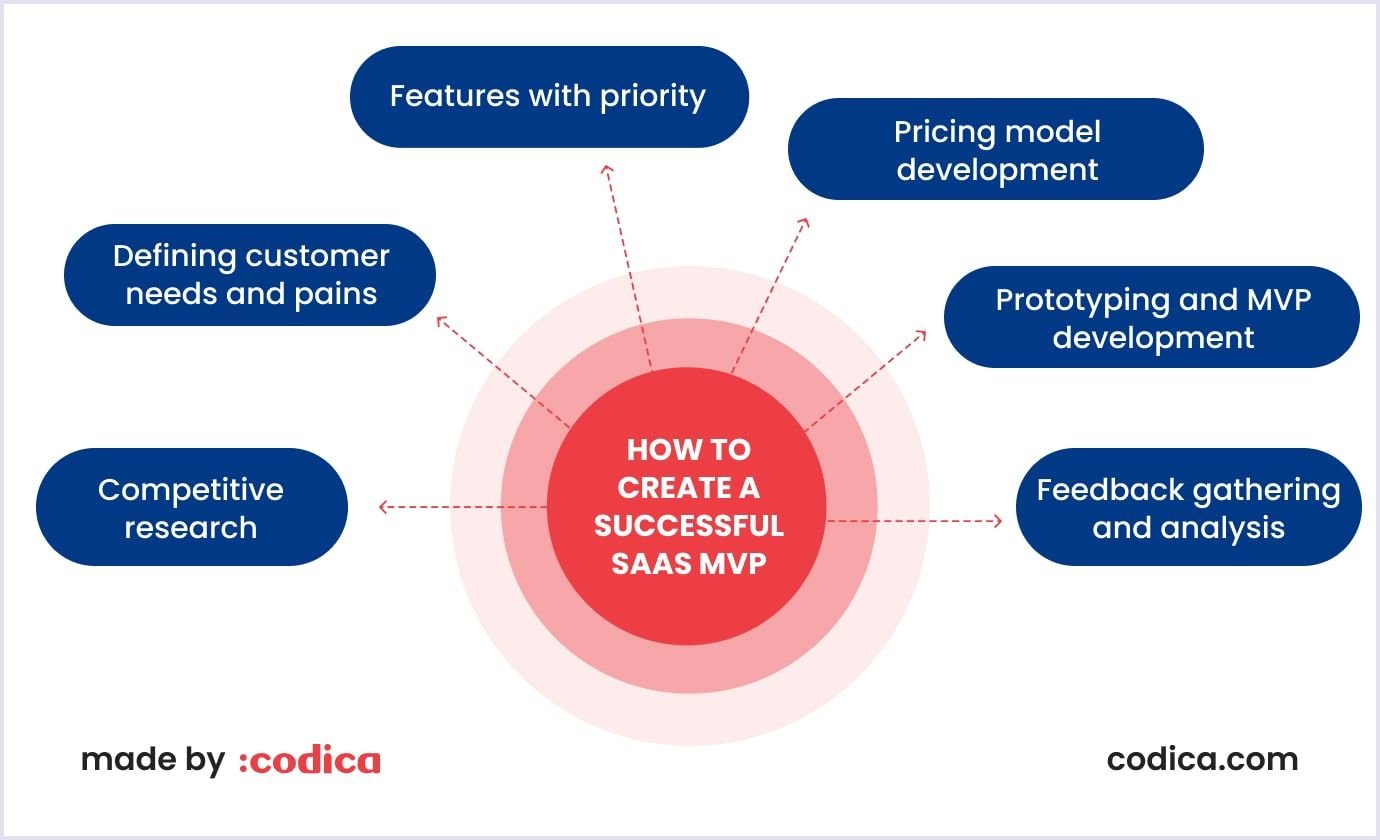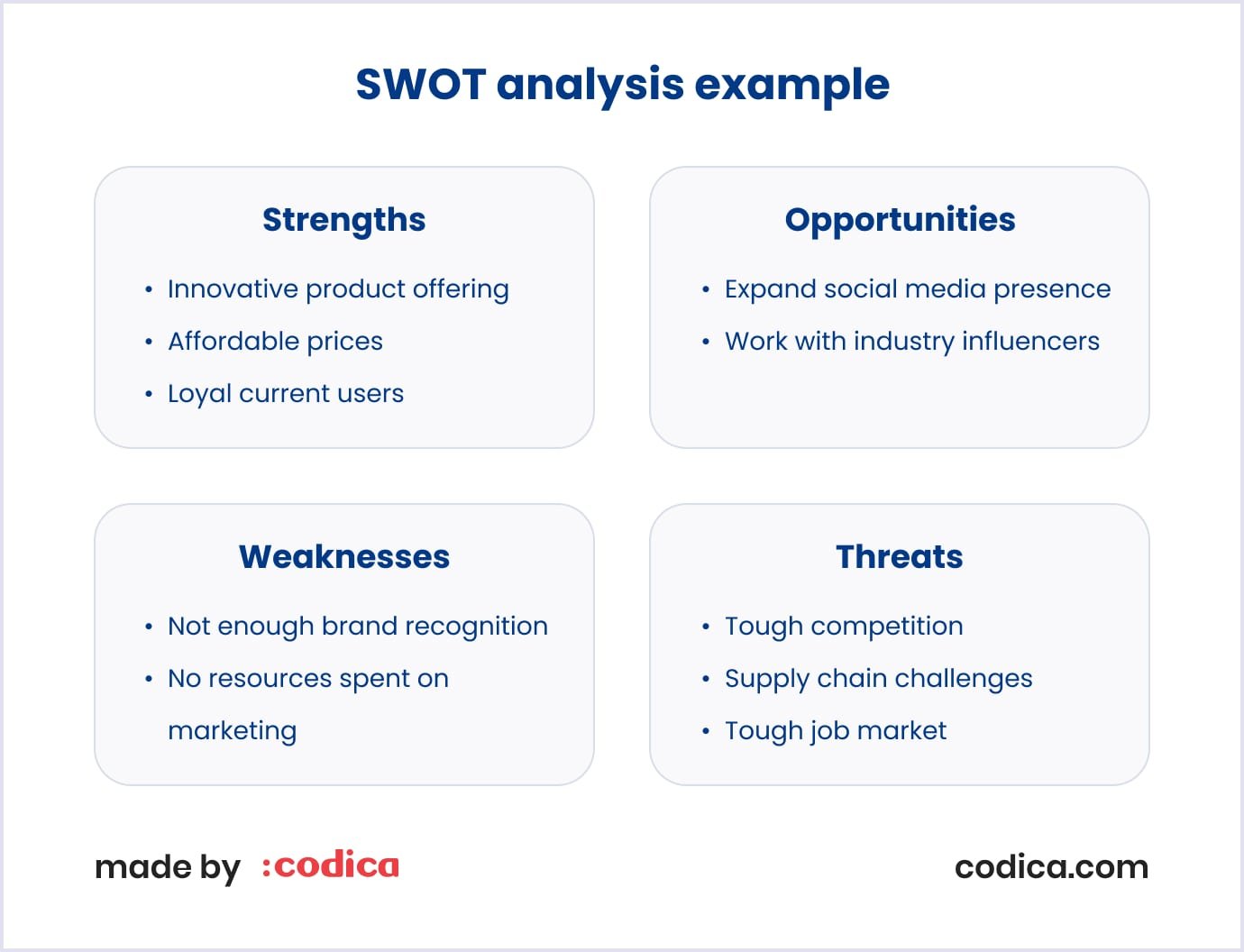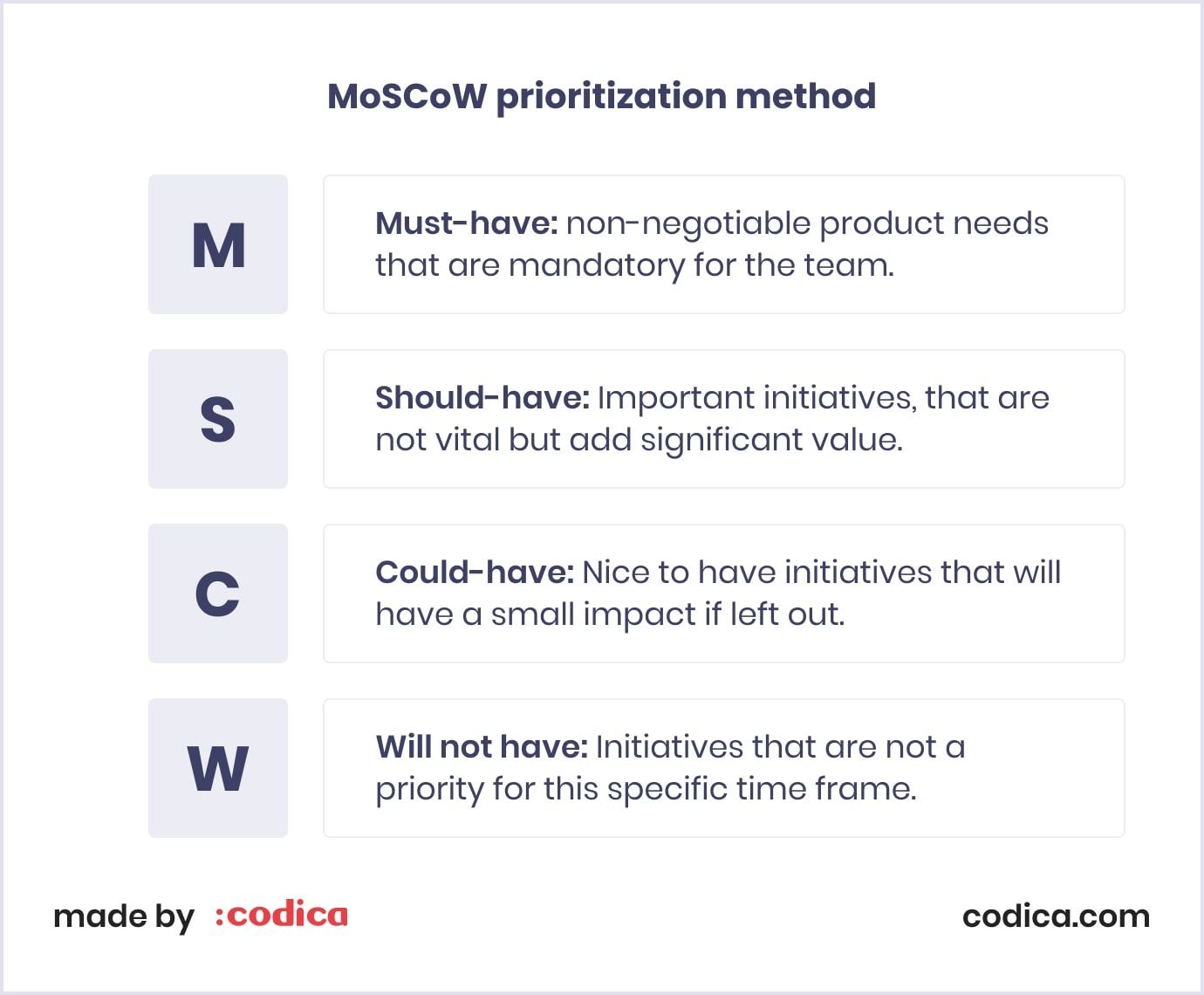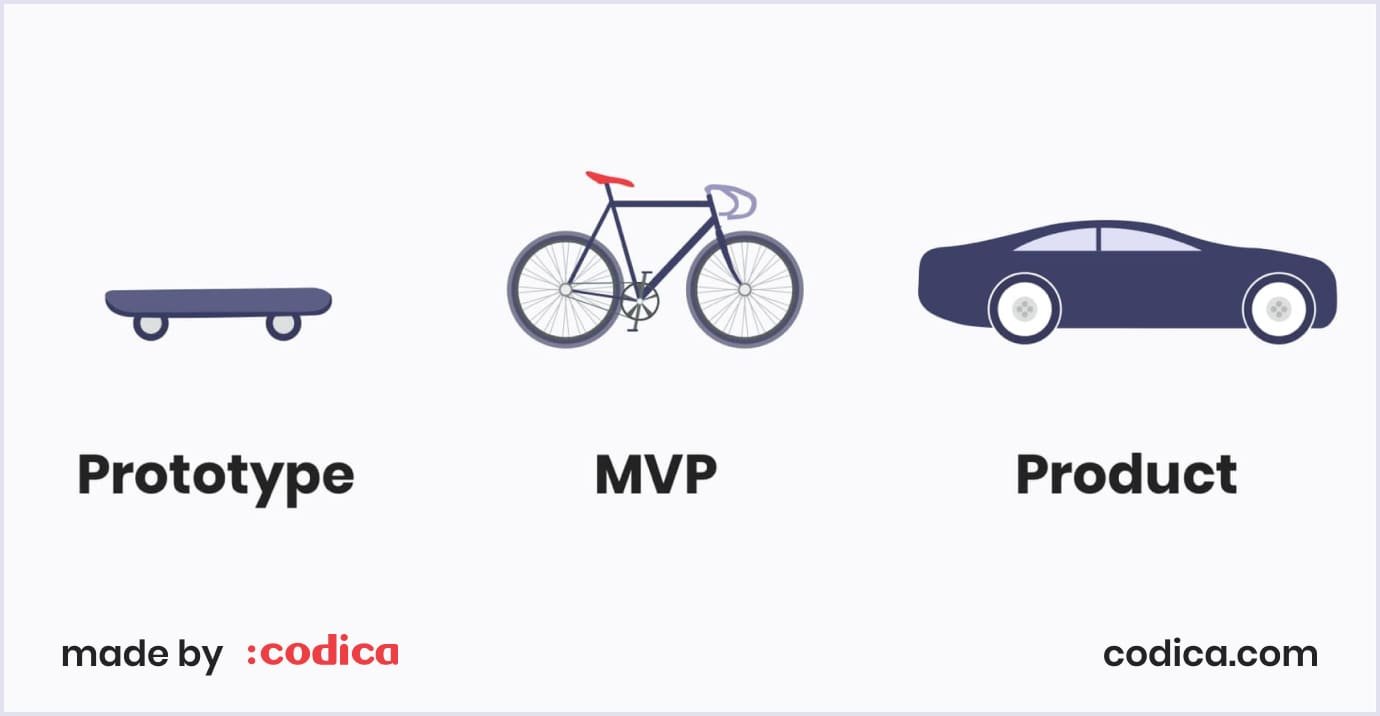It’s hard to imagine now that only some decades ago, people had to purchase and download software for all possible needs on their PCs. No matter the task, every new tool took some space on the hard drive, and every program update was a nightmare. Why? It needed extra space and pretty much your time and effort if something went wrong. Those days are gone, thanks to cloud computing and SaaS (software as a service) products.
These SaaS tools have changed the way we work and use software for good. As per recent forecasts, the SaaS market will reach approximately $299.07 billion in 2025. So when you want to discover how to build a SaaS, it's also essential to find out why it's better to start with a SaaS minimum viable product and how to create a SaaS MVP.
What is a SaaS MVP?
In a nutshell, SaaS MVP (minimum viable product) is an early working version of a cloud product. It has the must-have features needed for this solution. Still, an MVP offers enough value to end-users.
A minimum viable product development for SaaS is vital to validate the idea, launch the product fast, and, of course, save costs. Only after creating MVP for a SaaS startup it’s time for further steps: design, development, and upgrades.
Further reading: How to Build a Minimum Viable Product in 2025: The Ultimate Guide for Startup Founders
Why start with MVP for SaaS?
If you have a one-million-dollar idea, don’t hurry up with complex product development. It is vital to probe the market, initial idea, and start with building a SaaS MVP. Thus, you will test the waters before going all-in and avoid the reasons why SaaS startups fail.
Below are the main business benefits of MVP software development services for SaaS startups:

- Check the idea. With a SaaS MVP, you test your core concept and discover if there is demand for your SaaS in this highly saturated and competitive industry;
- Probe the market. Thanks to an MVP, you will test if your solution will gain user interest and you will last in the SaaS market;
- Reduce working hours. MVP has only the core features that make it marketable. Thus, it takes less time to develop than a full-featured solution;
- Receive the first income. If your idea is successful, you will get the income that you can reinvest in further development and scaling;
- Analyze the first reviews. Early feedback will highlight what you can improve in your SaaS MVP to meet the demand;
- Save costs and resources. By focusing on the minimum functionality, you save time and costs for development.
Read also: Exploring the Benefits of SaaS: Innovate, Scale, Succeed
MVP SaaS development from a technical point of view
Let’s talk about the technical hotspots when developing a minimum viable product for SaaS. Try to make it secure for users, scalable for developers, and performing for both with nothing extra.
The following tips will be useful for MVP for SaaS startup development:
- Use open-source tools;
- Consider fast prototyping with, let’s say, Ruby on Rails;
- Use available solutions, like Ruby gems;
- Don’t ignore load testing.

How to create a successful SaaS MVP
Of course, best practices exist when it comes to MVP development. SaaS solutions are no exception.

Let’s check our guide on SaaS MVP development in more detail.
1. Competitive research
Market and field research are still the first in your plan. You should know your competitors and find where you can do better.
Additionally, conduct a thorough SWOT analysis (strengths, weaknesses, opportunities, threats) alongside market and field research. This approach will provide a deeper understanding of your competitive landscape, enabling you to identify gaps and opportunities more effectively. Explore competitor product reviews, user feedback, and industry reports for valuable insights.

2. Defining customer needs and pains
Your first adopters are your main focus. No matter how cool your idea sounds, if no one needs such a tool, it's a waste of time.
So, conducting surveys and interviews and engaging with potential users to gain deep insights into their pain points and requirements is a great idea. This will inform your MVP development process and increase its chances of success.
3. Features with priority
When it comes to SaaS MVP development, there is no one-size-fits-all feature set. The features your solution should have depend entirely on your customers’ pains and needs. This customer-centric approach is critical to building a successful MVP. Here are two popular principles that can guide you in this process:
Pareto principle or 80/20 rule
In MVP, the version with 20% of all functionality is done first so you can check your users’ reactions. Following this, you will be able to define what features your end-users lack and have a clear picture of the coming (or final) version of the product. This rule helps avoid the 80% of the product’s functions not being used.
The MoSCoW method
This principle is another way of prioritization. You can avoid extra work and concentrate on thoroughly selected functionality for your SaaS MVP. Below is an example of four categories: M - must-have, S - should-have, C - could-have, and W - will not have.

4. Pricing model development
Choosing the right monetization strategy for your SaaS MVP is not that easy. That’s why check some helpful numbers as per SaaS market trends:
- 39% of SaaS companies adopt a value-based approach to pricing. This means pricing is directly related to the product's value to customers.
- Many SaaS companies (43%) revisit their pricing model more than once a year, while a good number of organizations (34%) change their pricing once a year.
- More than 50% are not testing their pricing with their customers. Only 17% of enterprises conduct multiple rounds of price testing to determine the actual value of their SaaS platform.
- 55% of companies usually do not post their exact pricing, while 45% do the opposite.
It is critical to consider thoroughly analyzing your target audience and competitors to determine the most effective pricing strategy for your MVP SaaS. So, experiment with different models to find the one that resonates best with your users and aligns with your business goals.
5. Prototyping and MVP development
Now, you can check your idea with a working prototype. A prototype is a product draft, while a minimum viable product is a version ready for the market.
You can use rapid prototyping methodologies to streamline development cycles and minimize resource wastage. Also, consider implementing an agile development framework to facilitate continuous improvement and adaptability.

6. Feedback gathering and analysis
Each feedback you receive is a testament to your progress and the value your product holds.
You can establish a robust feedback loop that encourages user engagement and participation. Use in-app feedback mechanisms, user forums, and social media channels to collect diverse views. Utilize sentiment analysis tools to extract valuable insights from qualitative feedback.
On the other hand, implement a structured approach to categorizing and prioritizing feedback. This will allow you to make informed decisions about feature enhancements and future development cycles. Regularly communicate updates based on user feedback to foster a sense of community and transparency.
Read also: How to Build a SaaS Startup in 10 Smart Steps
Factors that influence SaaS MVP development cost
Every SaaS is unique, especially in the MVP stage, so there is no unified SaaS MVP cost example for all. The price always depends on many factors. Let's look at what influences the final price of the SaaS development.
- Features sets and their complexity. When you develop SaaS MVP, you must understand the following formula. The more complex the solution you think of, the more features you want to include, and the more expensive it will be.
- The development team and its skills level for cloud service MVP. This team will deliver a high-quality solution within your budget. These developers know the challenges a SaaS business owner faces, how to solve them, and how to provide a successful cloud product.
- Prices for building SaaS MVP in different locations. A software development team in Eastern Europe will charge less for the same services than a team from the USA. For example, average developer hourly rates are $41-$80 per hour in North America, reaching $160. In Western and Eastern Europe, the rates are mostly $41-$120 per hour.
- Tech stack you choose. The technology stack is the basis of your software. SaaS MVP development overcomes many technical challenges: performance, scalability, security, and speed. First, cloud products rely on a top secure infrastructure for proper data handling. Second, consider the API (application programming interface) creation, third-party integration, and availability issues. You should also pay extra attention when choosing the hosting provider for your SaaS product. And finally, find out about the best frameworks for SaaS MVP development.
As you can see, several factors influence the cost of SaaS MVP. You will need to consider all of them to figure out the final price of your minimum viable product. That’s where an experienced SaaS development team can help you.
How can Codica help in building a SaaS MVP
Since 2015, the Codica team has been delivering SaaS development services worldwide. We help all types of businesses create new or support existing solutions and deal with possible challenges. Our team ensures that the delivered solution is unique, secure, scalable, and works well with other programs and tools.
The main industries in focus are travel, insurance, finance, automotive, and accommodation rental. Our team is building SaaS platforms of all types based on end-users’ needs.
Let us share one of the latest projects we delivered for the Australian market - SaaS MVP for accommodation search for expats. The big idea behind the project was to make the relocation to Australia fast, easy, and smooth for people who had found a job.

The customer’s main challenge was to create a fast-loading SaaS MVP of the accommodation platform to present it to investors. This solution also needed an accurate accommodation search.
The Codica team handled all business challenges and came up with a working minimum viable product for SaaS. We provided UI/UX design services, and frontend, backend, and MVP development services. As a result, we presented a complex solution, personalized pop-ups, and a search wizard with the most relevant offers.
Also, you can find more exciting case studies in our portfolio.
Final thoughts
With the current global shift to remote work, SaaS products have proven to be beneficial for businesses. Even if you did not consider cloud products or cloud MVP before, it’s high time to move in this perspective direction.
The good news is that you don't have to create a final product version at once. On the contrary, best business practices have proven that it's better to start building SaaS minimum viable products first.
If you are looking for a trusted SaaS development company with a solid tech background, consider the Codica team. We practice and know how to create a SaaS MVP on time and within the budget.
Contact us to get a secure and scalable solution that both your users and stakeholders will love.
